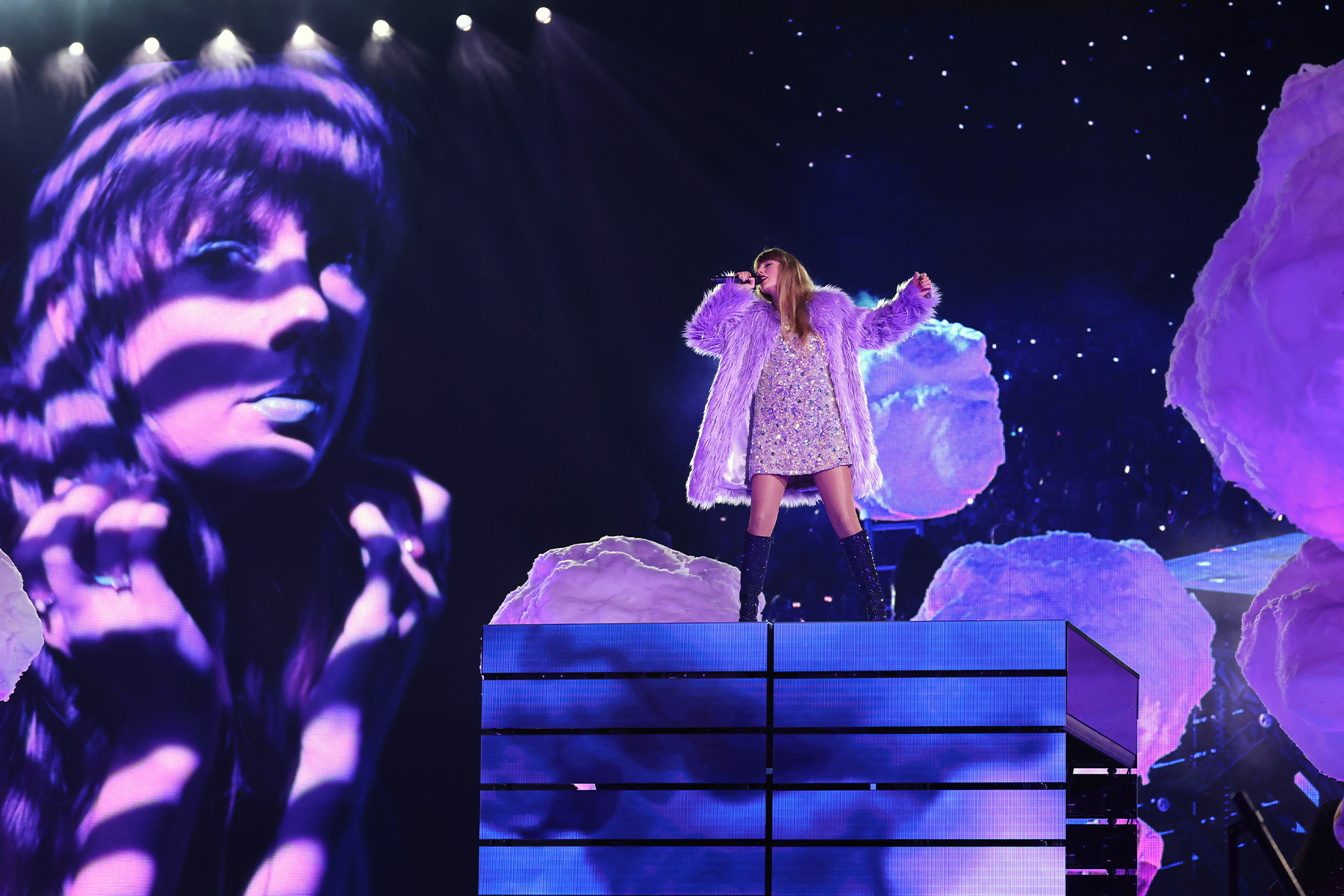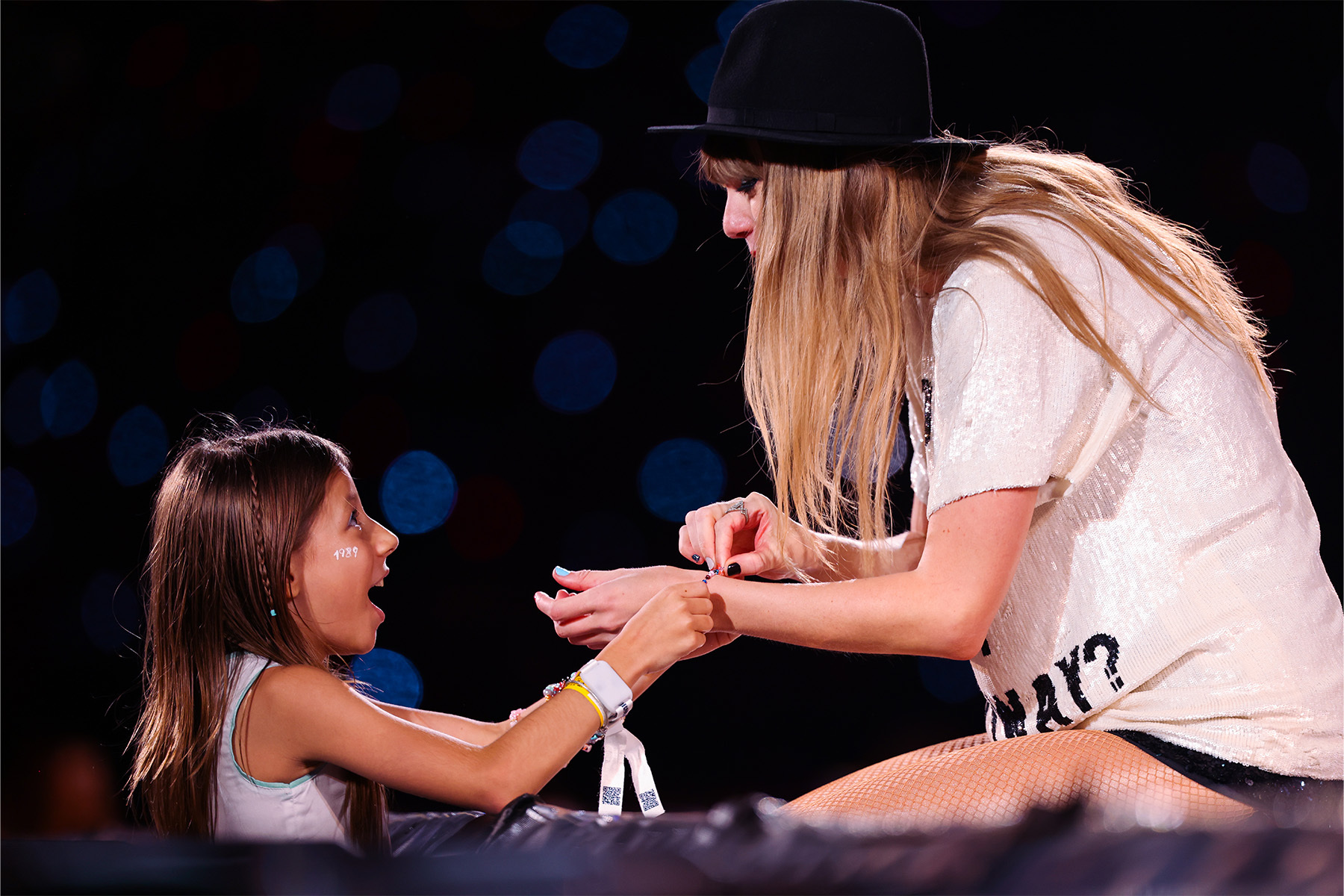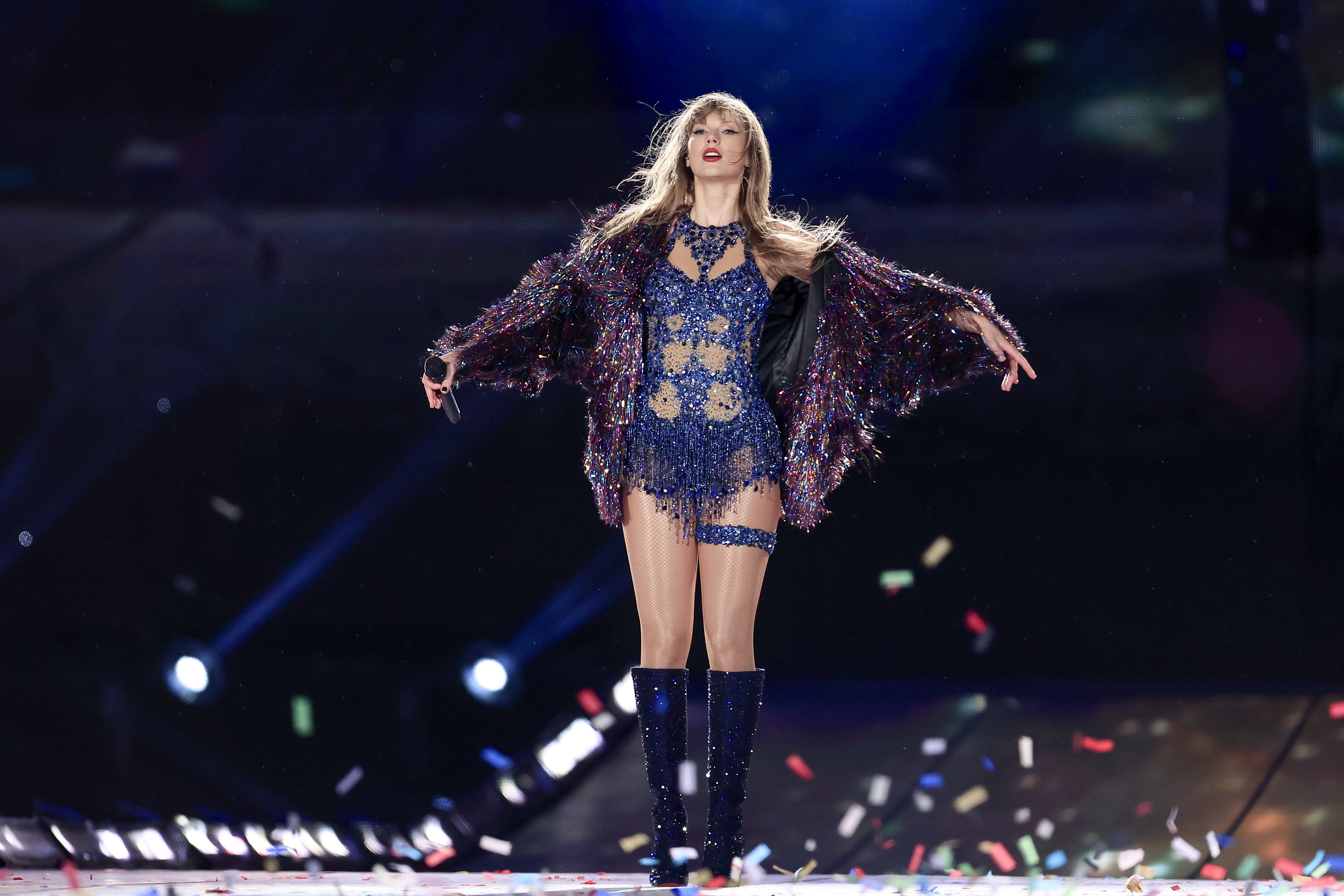
‘Anti-hero’: A philosophical take on Taylor’s existential authenticity

Taylor Swift fans adore her authenticity, but what does it actually mean to be ‘authentic’ when you are a mega-celebrity in the digital age?
Published 8 February 2024
Taylor Swift is often praised as an authentic artist because she’s open about her personal life and experiences – both in her music and on social media.
Her authenticity has helped her build a strong connection with her fans, and it’s one of the reasons why she’s one of the most successful artists in the world. Maybe the most successful artist of the 21st century.
If we look at the concept of ‘authenticity’ – which, according to the Oxford Dictionary, is simply “genuine; not feigned or false” – we need to unpack what it actually means, and in which context.
‘Not authentic’ can be used to describe, for example, the first couple of paragraphs of this article – which were (cheekily) mostly written by AI. So I cannot claim those words are an authentic product of my own creation.
In today’s digital age, considering the ‘authenticity’ of a celebrity is a tricky, subjective issue.
Scholars and pundits have different definitions: media studies scholars argue that Taylor Swift is authentic due to her being “a figure who emphasises the pop ‘performance’ as one of hard work”, while the popular press ascribes her “trademark authenticity she puts on each note and verse…” to “...realness, empathy, kindness, listening, a narrative (or journey-like) space big enough for all to partake and feel whole with oneself and others… devoid of pretension.”

Now, let’s throw social media into the mix. Tay-Tay is adept in the use of social media, which provides a sense of intimacy with her fans.
Some research in this area finds that authenticity is prized in social media-based self-expression, but also that authenticity is “fundamentally unstable [as it is] always relative to something else”, and there are multiple competing “authenticities”, depending on the social network.
This is where existentialist philosophy comes in.
This is a broad branch of philosophy concerned with the nature of being or existing, free will and choice – and authenticity.
Many famous thinkers, like philosophic partners Jean-Paul Sartre and Simone de Beauvoir, used their work to find meaning following the horrors of World War II.
Though this context makes it a bit heavy, it’s actually an uplifting philosophy: it empowers you to take responsibility for your actions and make the most of your situation, despite the fact that sometimes the cards are stacked against you.
Add in the philosophy of celebrity – an exciting and young research area – and we can now shine a philosophical lens over the phenomenon of social media and Internet-mediated celebrity authenticity.

So, is Tay-Tay the anti-hero she claims, or is she the hero of her own love story?
My colleague, Dr Elese Dowden, applied the concept of existential authenticity to explore Kim Kardashian and Kanye West’s infamous 2016 International Women’s Day selfie. I’ll paraphrase Dr Dowden who says it best: “in taking a selfie, a person asserts control over their own image, but at the same time, becomes [an] object in their own gaze.”
Here, Dr Dowden is channeling the work of Jean-Paul Sartre.

Sartre’s philosophy describes two modes of ‘being’ – the ‘in itself’ (en soi) which explains the state of worldly objects like your mobile phone; and the ‘for itself’ (pour soi) which explains the state of consciousness, or “autonomous, embodied subjects like you or I might be”, to borrow from Dowden.
In existentialism, it is hard to achieve authenticity. Social media engagement takes the form of likes, retweets and so forth, and your online profile runs the risk of becoming merely an object for others’ appreciation – an ‘in itself’.
Another point from Simone de Beauvoir’s work on existentialism is that ethically, you need to maximise not only your own, but others’, freedoms as well.
So, optimising your online profile for others’ appreciation in order to boost your engagement metrics (likes and so forth) is potentially inauthentic behaviour as it makes the viewers (your fans and followers on social media) do what you want them to do.

With those two points in mind, let’s look at how social media use by celebrities like Tayor Swift can both speak to (and run the risk of) going against authenticity, in the eyes of existentialists.
Acknowledging your ‘celebrity’ status by celebrating your fandom is a form of existential authenticity, while also breaking the barrier between yourself and your fans when ethically required.
Swift achieved this when she called for water to be given to fans during an exceptionally hot concert in Brazil, and then addressing the death of a fan directly on her socials.

Arts & Culture
‘The Man’: Taylor’s feminism could go so much further
However, when Swift deleted some content on her socials in 2017, the net effect was to build hype among her fan base: this aligns with the de Beauvoir-esque argument of carefully curating one’s public portrayal in service of the attention economy.
So while it may look authentic on the surface, it runs the risk of treating a fan as a means-to-an-end, rather than an autonomous ‘for itself’.
An ‘authentic’ Swift should also, both in person and on social media, speak out against harmful behaviours by her online fans (which she has in the past), rather than staying silent.
The notion of authenticity in an online celebrity’s public persona needs to be reconsidered in 2024: existential authenticity reminds us to maximise others’ freedom and protect them from harm or any curtailment of their freedoms.

It’s important celebrities are especially careful about how they interact with their fans, in order to avoid causing harm.
Celebrities should be aware of the power that they have over their fans, and use that power responsibly, and also ensure that their fans, in turn, maximise others’ freedoms through a healthy fandom and positive social media usage.
And Taylor’s potential power to do this is staggering. As long as it’s authentic. Existentially speaking.
Swiftposium is an academic conference for scholars discussing the impact of Taylor Swift. It runs at the University of Melbourne from 11-13 February 2024 with public events on Sunday 11 February and recordings of the keynote presentations available online after the conference.
Banner: Taylor Swift performing her ‘Midnights Era’ in Inglewood, California/Getty Images
